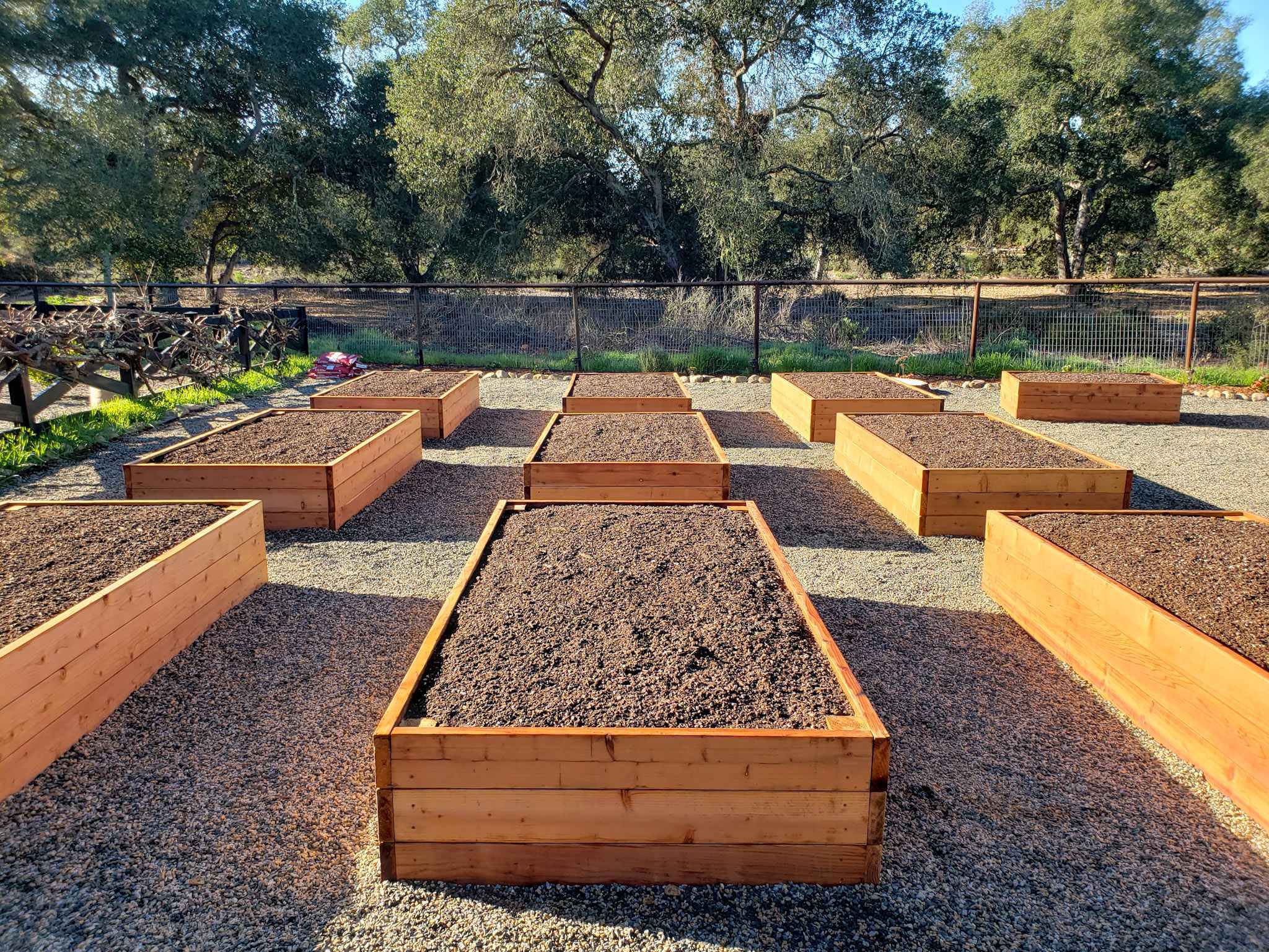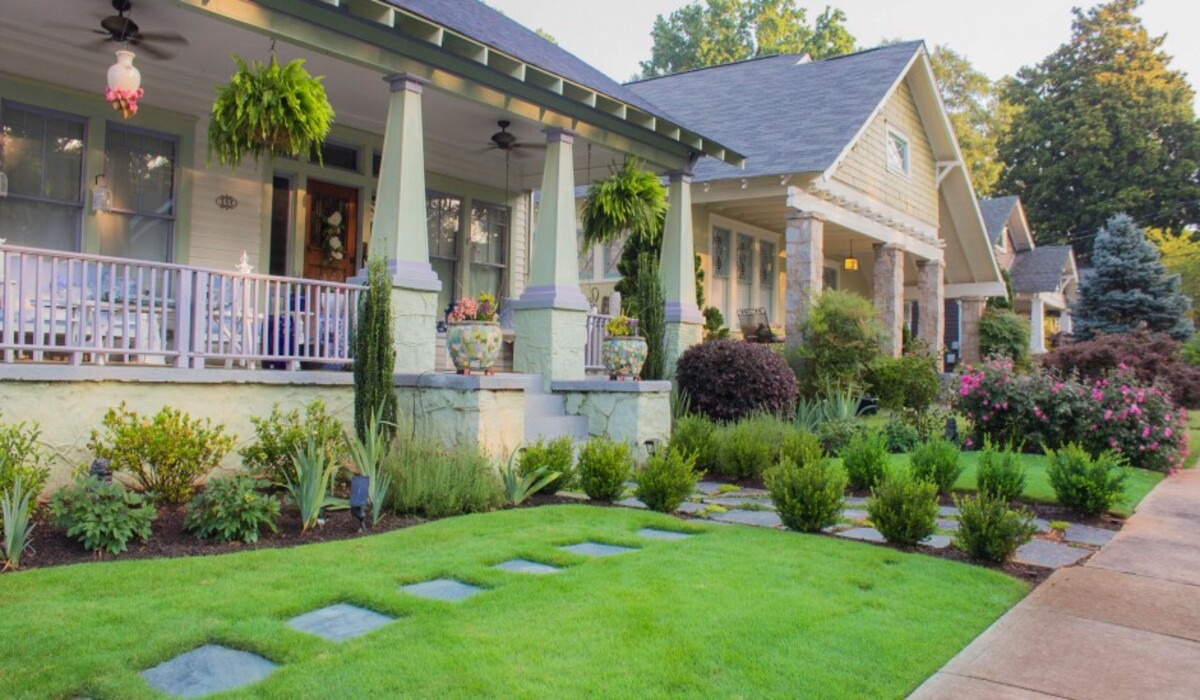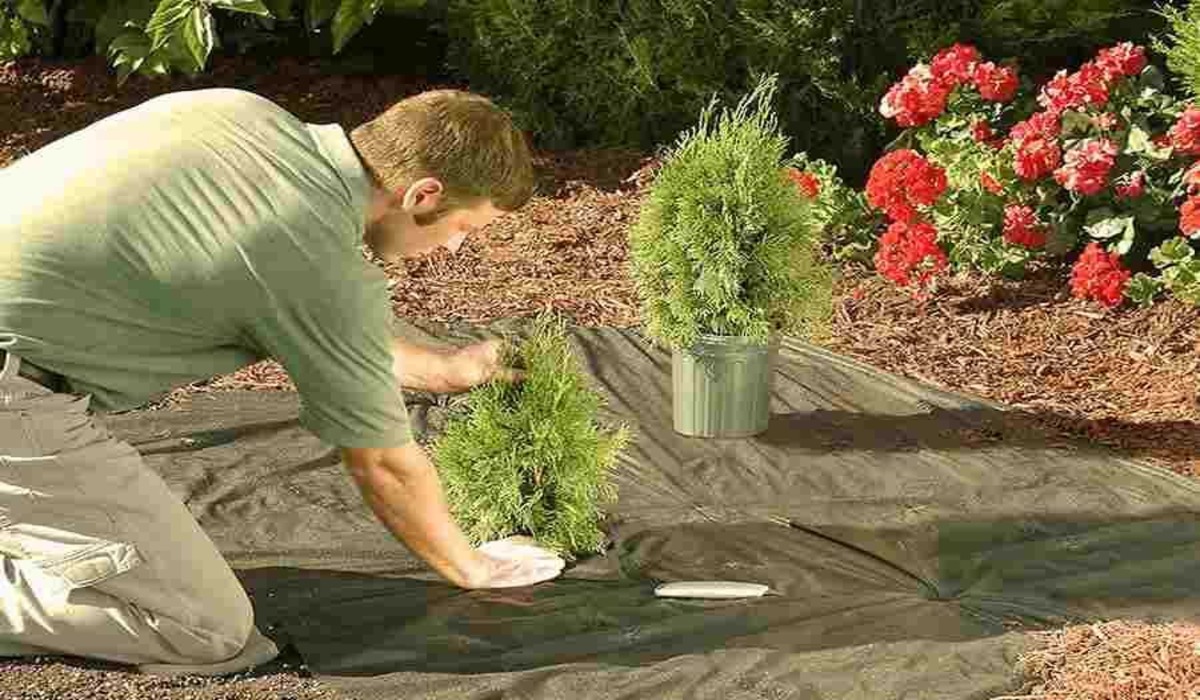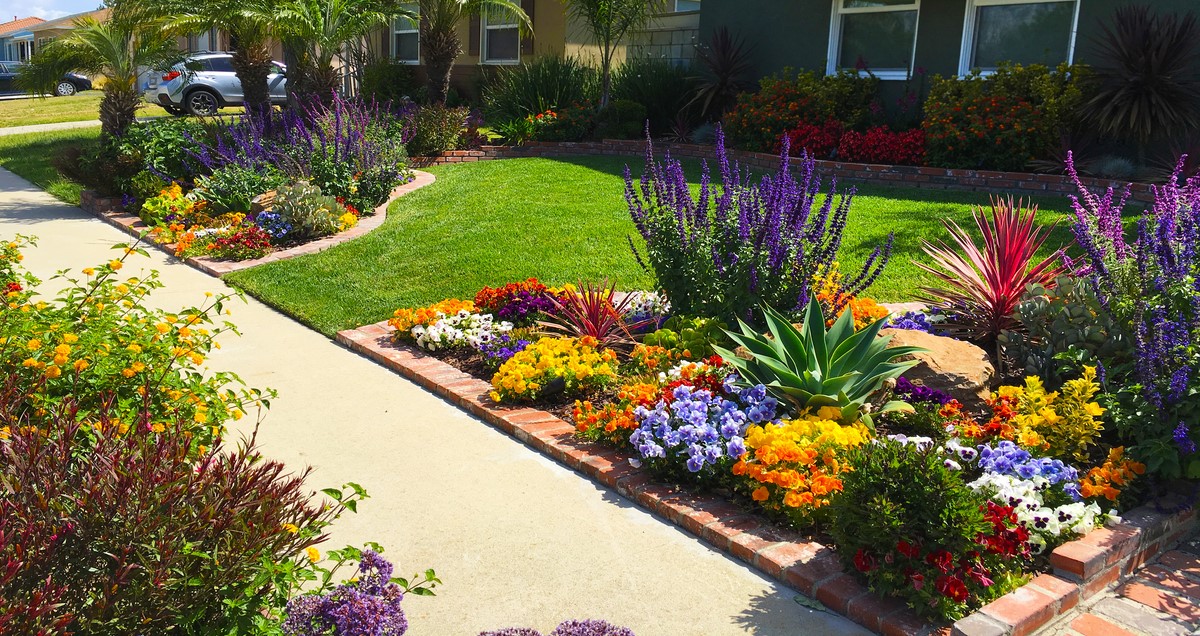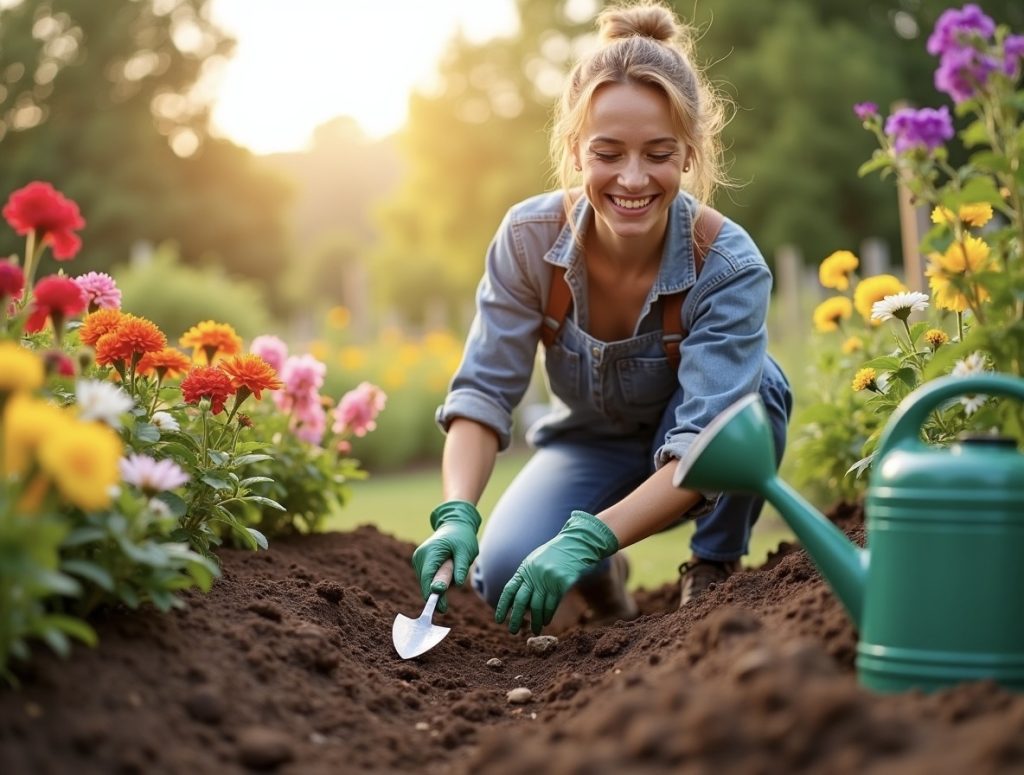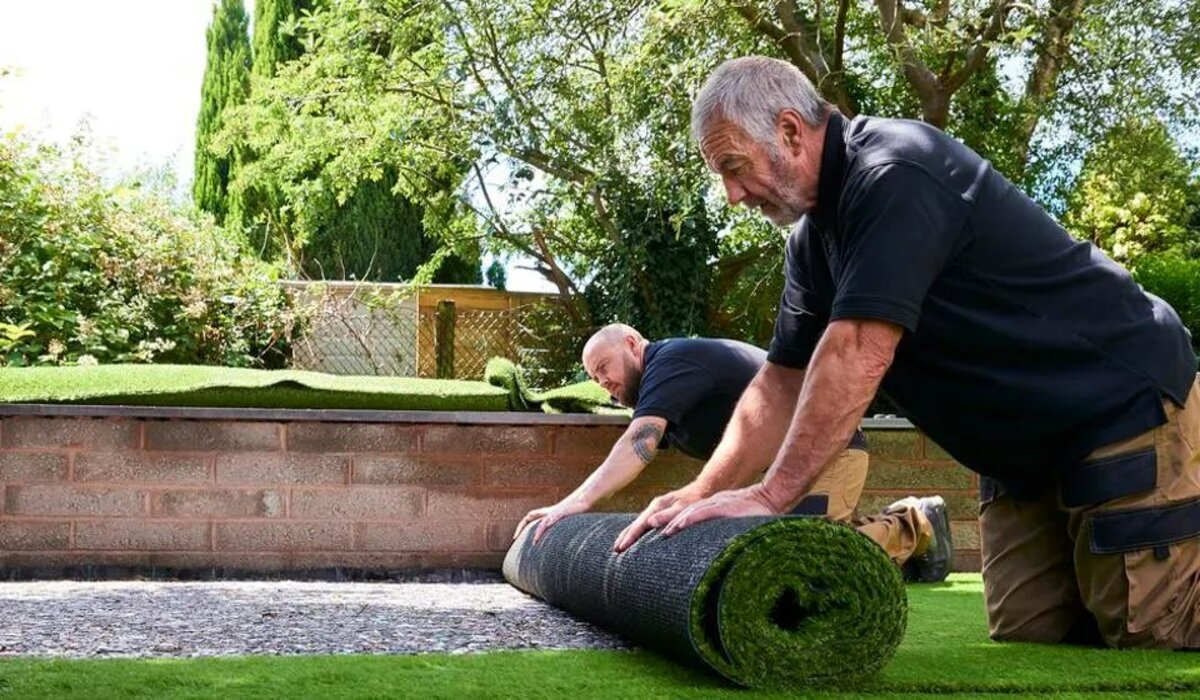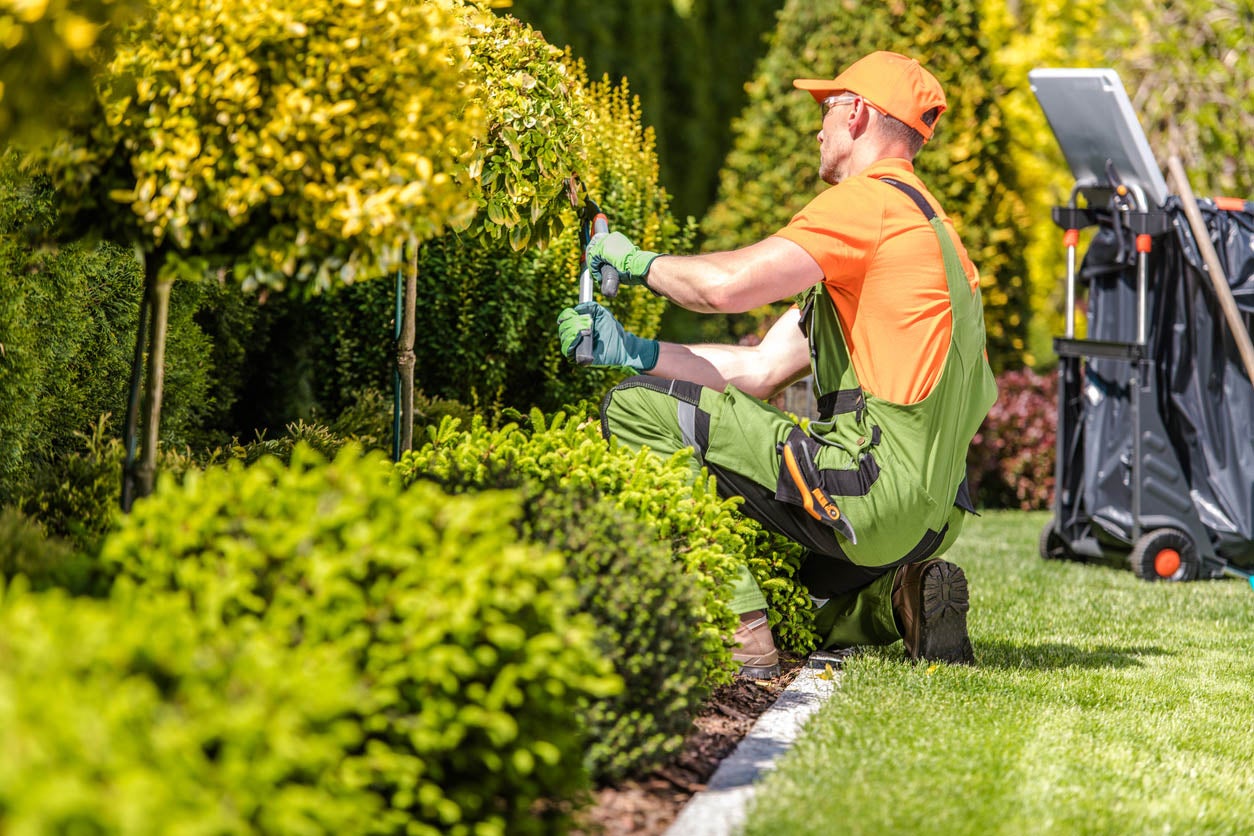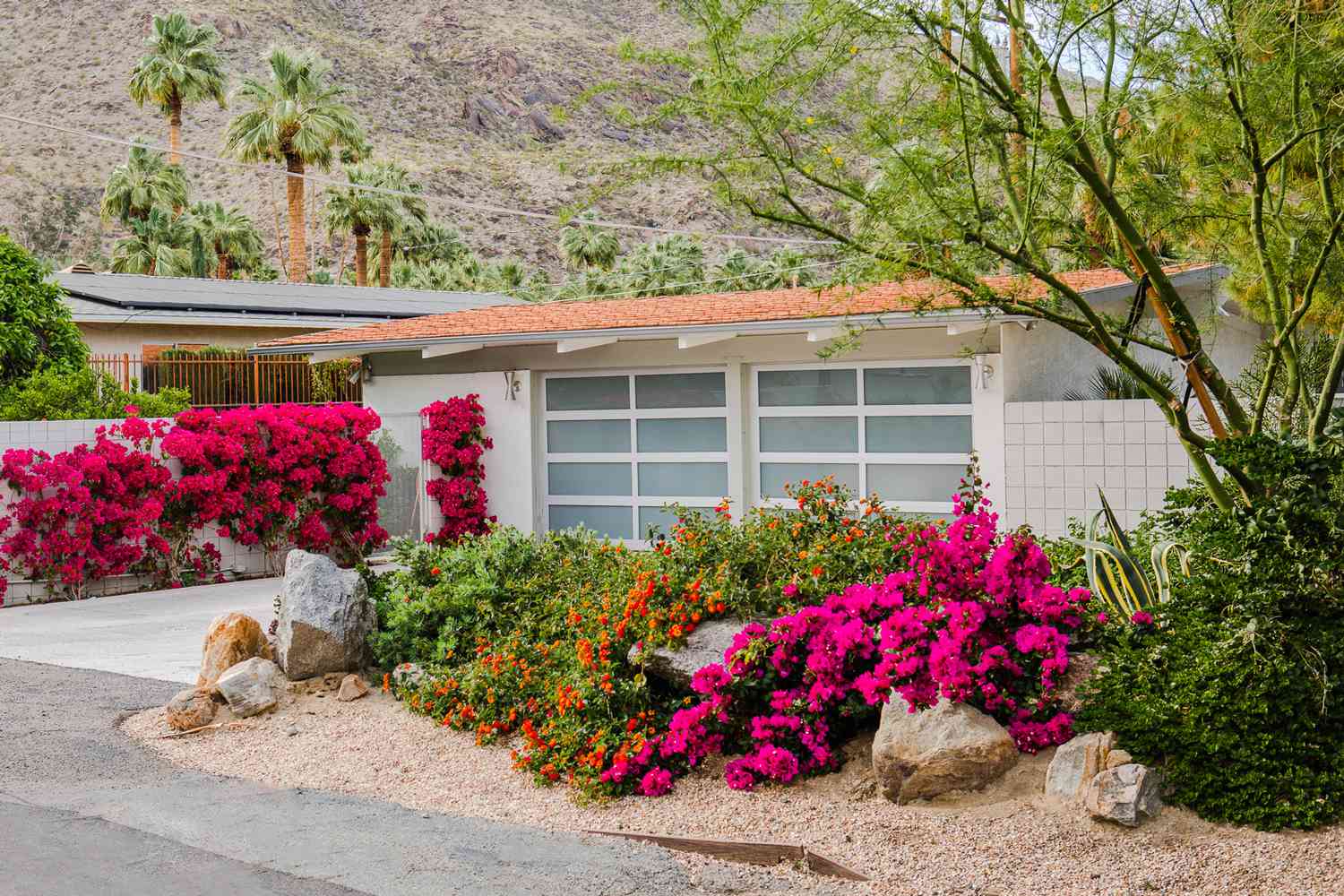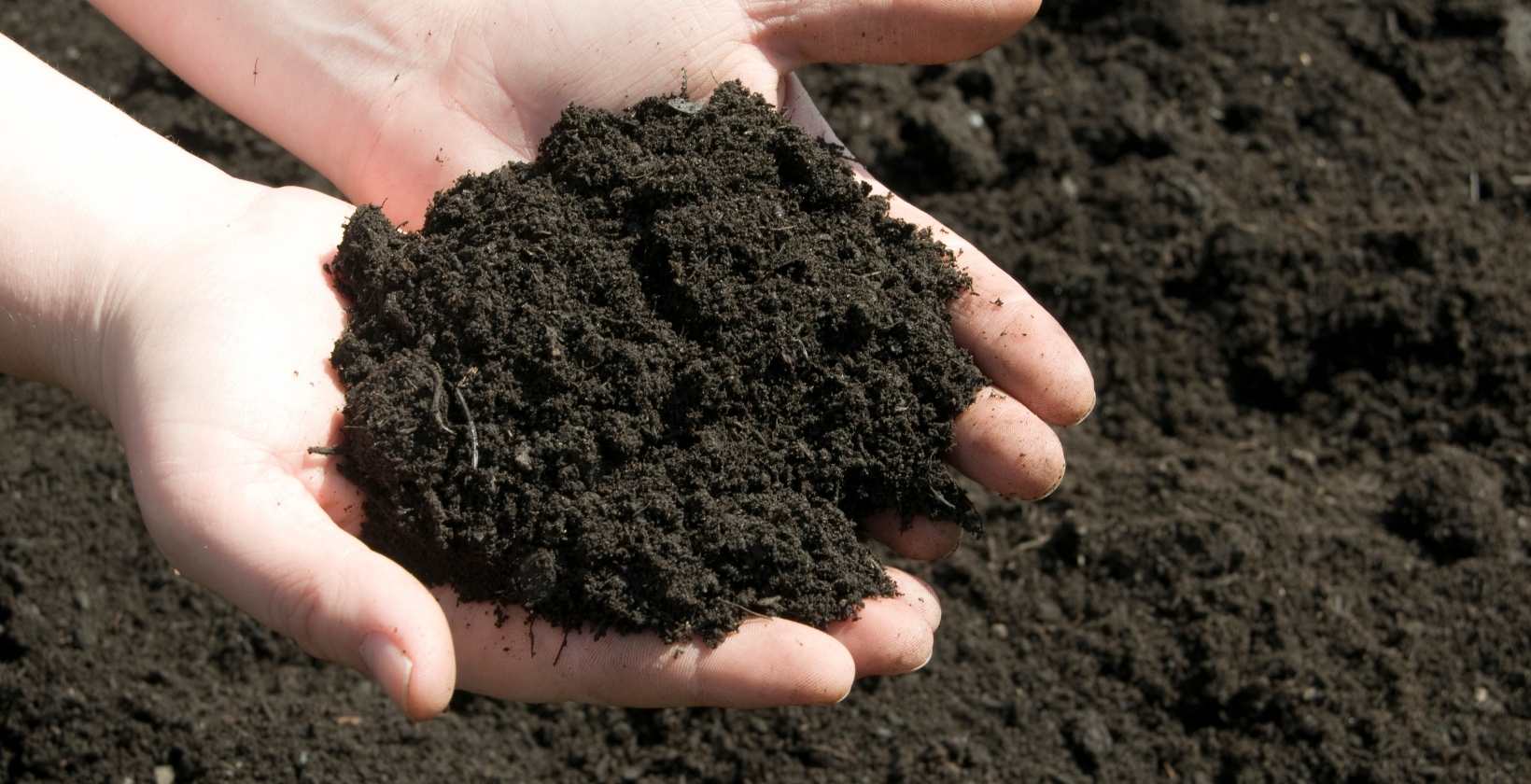Home>Garden Design>Planning Your Garden>How Much Does Landscaping Add To The Value Of A Home
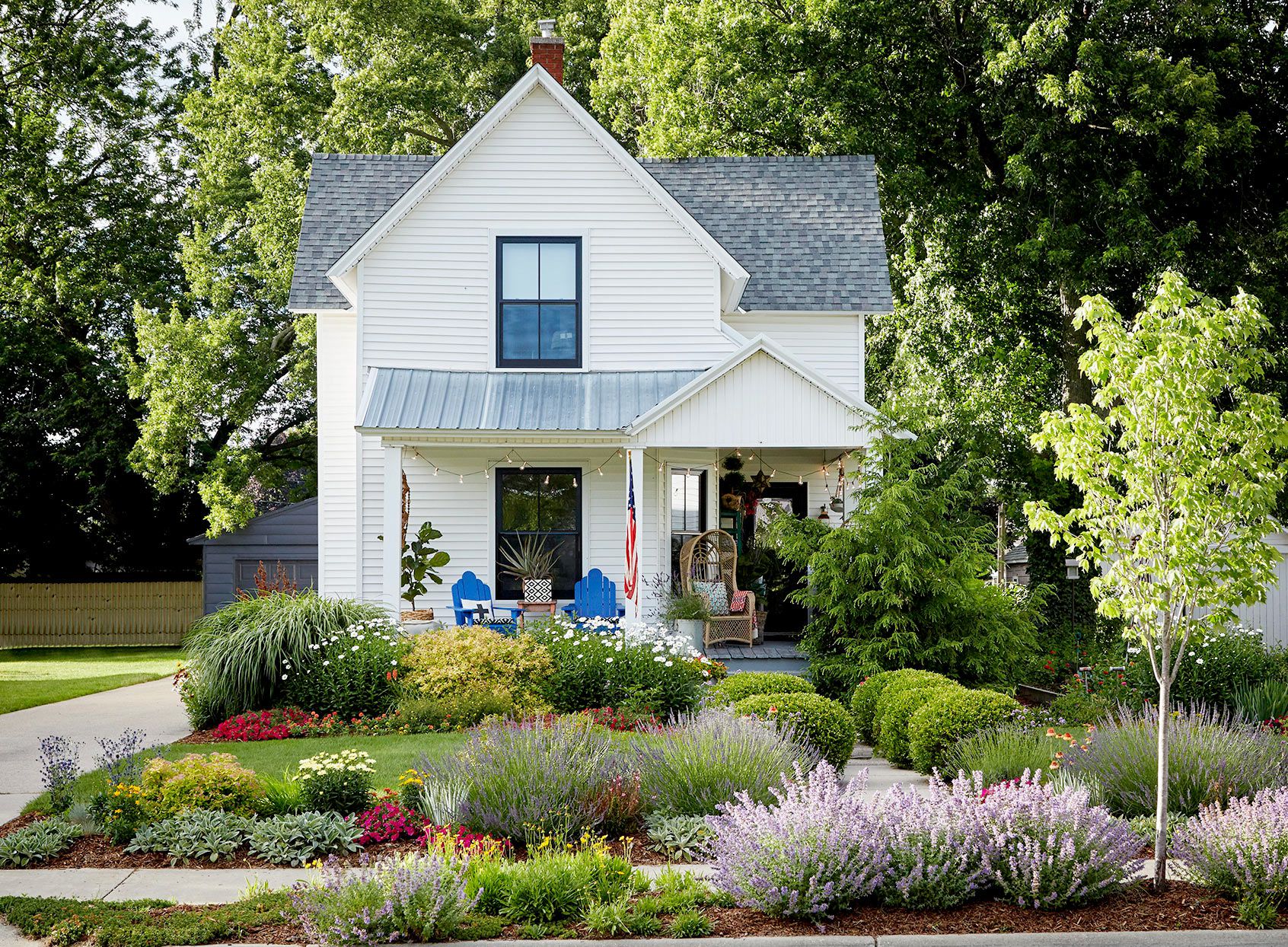

Planning Your Garden
How Much Does Landscaping Add To The Value Of A Home
Modified: January 22, 2024
Planning your garden? Discover how much value landscaping can add to your home. Maximize your investment with expert tips and advice.
(Many of the links in this article redirect to a specific reviewed product. Your purchase of these products through affiliate links helps to generate commission for Chicagolandgardening.com, at no extra cost. Learn more)
Table of Contents
- Introduction
- Factors That Influence the Value of Landscaping
- Importance of Landscaping in Real Estate
- Benefits of Landscaping to Home Value
- The Role of Curb Appeal in Home Valuation
- How Landscaping Enhances Property Value
- Cost vs. Value: Calculating the Return on Investment
- Hiring Professionals vs. DIY Landscaping
- Tips for Increasing Your Home Value through Landscaping
- Conclusion
Introduction
Welcome to the world of landscaping, where outdoor spaces are transformed into breathtaking gardens, inviting havens, and luxurious retreats. Whether you are a current homeowner looking to enhance your property or someone in the market for a new home, understanding the impact of landscaping on property value is crucial. Landscaping plays a significant role in not only beautifying your surroundings but also increasing the overall value of your home.
Imagine stepping into a lush garden, filled with vibrant flowers, well-manicured lawns, and charming pathways. This visual feast not only creates a sense of tranquility but also leaves a lasting impression on potential buyers. Studies have consistently shown that a well-designed and maintained landscape can add significant value to a property, sometimes up to 20% of the home’s overall worth. With such compelling numbers, it’s clear that investing in landscaping is a wise choice.
But what exactly factors into this added value? What makes landscaping such an important element in real estate? In this article, we will delve into the various aspects of landscaping and how they contribute to the overall value of a home. We will explore the importance of curb appeal, the benefits of landscaping, and the role it plays in the valuation process. Whether you are planning to sell your home or simply want to create an outdoor oasis for your own enjoyment, understanding the impact of landscaping will empower you to make informed decisions.
So, grab your gardening gloves, sharpen your pruning shears, and join us as we embark on a journey to unlock the secrets of landscaping and its impact on the value of your home. Let’s explore the world of horticulture, design, and aesthetics, and discover how you can turn your garden into a valuable asset.
Factors That Influence the Value of Landscaping
When it comes to assessing the value that landscaping adds to a home, several factors come into play. These factors can greatly impact how much value is ultimately added and how attractive the overall landscape is to potential buyers. Here are some key factors that influence the value of landscaping:
- Design and Layout: A well-designed and thoughtfully laid out landscape can significantly enhance the appeal of a property. Factors such as the arrangement of plants, pathways, and outdoor living spaces can create a visually pleasing and functional outdoor environment.
- Plant Selection: The choice of plants can greatly impact the value of landscaping. Incorporating a variety of plant species that are suitable for the climate and maintenance requirements can ensure a vibrant and thriving landscape.
- Quality of Materials: The quality of materials used in hardscaping elements, such as patios, decks, and fences, can greatly influence the value of landscaping. Using durable and high-quality materials not only enhances the overall aesthetics but also adds long-term value to the property.
- Maintenance: Regular maintenance and upkeep of the landscape are essential in preserving its beauty and ensuring its value. A well-maintained landscape indicates to potential buyers that the property has been cared for and is a valuable asset.
- Water Efficiency: With increasing environmental awareness, water-efficient landscapes have become highly desirable. Implementing irrigation systems, rainwater harvesting methods, and drought-tolerant plantings can not only conserve water but also add to the value of the property.
- Outdoor Amenities: Outdoor amenities such as swimming pools, fire pits, outdoor kitchens, and entertainment areas can significantly enhance the value of landscaping. These features create an inviting and luxurious atmosphere that appeals to potential buyers.
It is important to note that the value of landscaping is subjective and can vary depending on the preferences and needs of potential buyers. Consequently, it is essential to consider the local market and target demographic when designing and enhancing your landscape.
By taking into account these factors, you can maximize the value of your landscaping investment and create an outdoor space that is not only visually appealing but also adds substantial value to your home.
Importance of Landscaping in Real Estate
Landscaping is an essential element in the world of real estate, playing a vital role in attracting potential buyers and increasing the value of a property. A well-designed and meticulously maintained landscape can make a lasting impression and set your home apart from the competition. Here are some reasons why landscaping holds immense importance in the realm of real estate:
- Enhanced Curb Appeal: The exterior of a home is the first thing potential buyers see when they arrive. A beautifully landscaped yard can instantly create a sense of curb appeal, enticing buyers to explore further. It sets the stage for a positive first impression and can significantly impact a buyer’s perception of the overall property.
- Emotional Connection: Landscaping has the power to evoke emotions and create a connection with potential buyers. A well-designed and inviting outdoor space can make potential buyers envision themselves living in the property and enjoying the surroundings. This emotional connection can greatly influence their decision-making process.
- Outdoor Living Spaces: In recent years, there has been a growing trend towards outdoor living spaces. Homebuyers are increasingly seeking properties with well-designed outdoor areas that can serve as extensions of their living spaces. A thoughtfully designed landscape with features such as patios, decks, and outdoor kitchens can significantly increase the appeal and value of a home.
- Healthy Living: Green spaces have a positive impact on our well-being, both physically and mentally. A lush and well-maintained landscape can create a sense of tranquility and provide a space for relaxation and outdoor activities. Potential buyers are drawn to properties that offer a healthy and serene environment.
- Neighborhood Aesthetics: Landscaping not only enhances the value of an individual property but also contributes to the overall aesthetics of the neighborhood. Well-kept landscapes in the surrounding area create a pleasant environment and indicate a sense of community pride. This, in turn, can have a positive impact on the desirability and value of all properties in the neighborhood.
- Long-Term Investment: Landscaping is not just about immediate visual appeal; it is also an investment that can provide long-term benefits. A well-maintained landscape can appreciate in value over time, ensuring a solid return on investment. It is a wise decision that pays dividends, whether you plan to sell your property in the near future or enjoy it for years to come.
Considering the importance of landscaping in the real estate market, it is crucial for homeowners to prioritize their outdoor spaces. By investing in landscaping and creating an enchanting outdoor environment, you can significantly increase the value of your home and attract potential buyers who appreciate the beauty and benefits of a well-designed landscape.
Benefits of Landscaping to Home Value
Landscaping offers numerous benefits that contribute to the value of a home. Beyond just aesthetics, a well-designed and maintained landscape can significantly enhance the overall appeal and marketability of a property. Let’s explore some of the key benefits that landscaping brings to home value:
- Increased Property Value: Landscaping is a tangible investment that can add value to your home. Studies have shown that a well-landscaped property can increase its value by up to 20%. This means that for every dollar spent on landscaping, you can potentially see a significant return on investment when it comes time to sell.
- Curb Appeal: First impressions matter when it comes to selling a home. A beautifully landscaped front yard creates an unforgettable first impression, instantly attracting buyers and setting your property apart from others on the market. Curb appeal is an essential factor in driving interest and increasing the perceived value of a home.
- Outdoor Living Space: An appealing landscape extends your living space beyond the confines of your home. By creating inviting outdoor areas such as patios, decks, and gardens, you effectively increase the usable square footage of your property. This additional living space adds value to the home and appeals to buyers looking for functional and enjoyable outdoor areas.
- Energy Efficiency: Properly placed trees and shrubs can act as natural insulation for homes. By strategically planting trees to provide shade in the summer and creating windbreaks in the winter, you can reduce heating and cooling costs. Energy-efficient landscaping not only saves you money but can be an attractive selling point for energy-conscious buyers.
- Privacy and Security: Landscaping can provide privacy and security by creating natural barriers and delineating property boundaries. Fences, hedges, and well-placed trees can offer seclusion and peace of mind, making your home more valuable to potential buyers who desire privacy and safety.
- Environmental Benefits: Landscaping plays a vital role in preserving the environment. With climate change concerns and a growing focus on sustainability, eco-friendly landscapes have become increasingly desirable. The presence of native plants, rain gardens, and water-efficient irrigation systems can showcase your commitment to the environment, making your property more appealing to environmentally-conscious buyers.
By investing in landscaping, you not only enhance the visual appeal of your property but also increase its value and marketability. A well-designed landscape with its numerous benefits can be a significant selling point, attracting buyers and setting your home apart in a competitive real estate market.
The Role of Curb Appeal in Home Valuation
Curb appeal is a crucial element when it comes to valuing a home and plays a significant role in determining its marketability and perceived value. As the name suggests, curb appeal refers to the attractiveness of a property when viewed from the street or curb. It encompasses the overall aesthetic appeal, cleanliness, and visual impact of a home’s exterior.
First impressions matter, and curb appeal is the first impression potential buyers will have of your home. This initial glance can make or break their interest in further exploring the property. Here are some key reasons why curb appeal is essential in home valuation:
- Attracting Potential Buyers: Aesthetically pleasing exterior features such as well-maintained landscaping, a tidy front yard, and an inviting entrance can instantly attract potential buyers. A visually appealing home creates an emotional connection and a sense of eagerness to see more.
- Setting a Positive Tone: Curb appeal sets the tone for the entire home. A well-kept and attractive exterior creates the expectation that the interior will also be in good condition. Buyers are more likely to perceive a well-maintained exterior as an indication of a well-maintained interior, increasing their interest in the property.
- Influencing Valuation Perception: The visual impact of a property greatly influences the perceived value. A home with outstanding curb appeal will generally be valued higher compared to a similar property with a neglected exterior. The initial impression created by a well-presented exterior can positively influence the perceived value of a home.
- Creating a Competitive Advantage: In a competitive real estate market, curb appeal can give your property a significant advantage. With numerous options available to buyers, an attractive and well-maintained exterior can make your home stand out and generate more interest, potentially leading to faster and more favorable offers.
- Increasing Marketability: A property with strong curb appeal is inherently more marketable. It is more likely to capture the attention of potential buyers and generate higher levels of interest. This increased marketability can lead to a greater number of offers, creating a competitive bidding environment that can drive up the final sale price.
While the interior features of a home are vital, it is crucial not to overlook the importance of curb appeal. A well-maintained and visually appealing exterior can significantly impact the valuation of your home and make it more desirable to potential buyers. By investing in enhancing the curb appeal, you can increase the perceived value of your property and set the stage for a successful sale.
How Landscaping Enhances Property Value
Landscaping goes beyond mere aesthetics—it can greatly enhance the overall value of a property. Here are several ways in which landscaping contributes to increasing property value:
- Improved Curb Appeal: A well-designed and maintained landscape instantly boosts the curb appeal of a property. A visually appealing exterior creates a positive first impression, enticing potential buyers and increasing their interest in the property. This initial impact can significantly enhance the perceived value of the home.
- Enhanced Functionality: Landscaping can transform outdoor spaces into functional areas for relaxation, entertainment, and recreation. Features such as patios, decks, outdoor kitchens, and fire pits provide additional living spaces, ultimately increasing the usable square footage of the property. These functional enhancements improve the overall desirability and value of the home.
- Increased Privacy and Security: Strategically placed landscaping elements such as fences, hedges, and trees can offer privacy and security. These features create a shield against prying eyes, noise, and potential intruders, making the property more appealing and valuable to buyers who place a high priority on privacy and safety.
- Energy Efficiency and Sustainability: Thoughtful landscaping can contribute to energy efficiency and sustainability. By strategically planting trees to provide shade in the summer or act as windbreaks in the winter, homeowners can reduce the need for air conditioning or heating, thus decreasing energy consumption. Additionally, incorporating water-efficient irrigation systems, native plants, and rainwater harvesting can showcase eco-friendliness and conservation efforts, which are highly valued by environmentally-conscious buyers.
- Increased Market Demand: Landscaped properties are generally more desirable and appeal to a broader pool of potential buyers. In today’s competitive real estate market, properties with well-designed and well-maintained landscapes stand out from the crowd. Higher demand can result in increased competition among buyers, driving up the property’s value and potentially leading to higher sale prices.
- Positive Emotional Connection: Landscaping has the power to evoke emotions and create a positive emotional connection with potential buyers. A beautiful and well-maintained landscape creates a sense of tranquility, relaxation, and pride of ownership. The emotional appeal adds to the overall value that buyers associate with the property.
Ultimately, landscaping enhances property value by improving curb appeal, functionality, privacy, energy efficiency, market demand, and emotional connection. Investing in landscaping not only adds aesthetic appeal to your home but can also provide a solid return on investment, making it a wise decision for homeowners looking to increase the value of their property.
Cost vs. Value: Calculating the Return on Investment
When it comes to landscaping, homeowners often wonder about the return on their investment. While the value that landscaping adds to a property can be subjective, evaluating the cost versus the potential return on investment is essential. Here’s how you can calculate the return on your landscaping investment:
1. Research and Estimate Costs: Start by researching the costs associated with the landscaping project you have in mind. Consider factors such as labor, materials, plantings, hardscaping features, and ongoing maintenance expenses. Collect quotes from reputable professionals to obtain accurate estimates.
2. Determine the Increase in Property Value: To calculate the return on investment, estimate the potential increase in the value of your property that can be attributed to landscaping. This can vary depending on factors such as the size, location, and desirability of your property, as well as the quality of the landscaping improvements.
3. Consider Market Factors: Take into account the local real estate market conditions and trends. Research recently sold properties with similar landscaping features to get an idea of how landscaping affects property values in your area. This will help you make a more accurate assessment of the potential return on investment.
4. Evaluate Long-Term Benefits: Beyond just the monetary return on investment, consider the long-term benefits of landscaping. A well-maintained landscape can enhance your quality of life, provide a tranquil outdoor space for relaxation, and contribute to your overall enjoyment of the property.
5. Consult with a Real Estate Professional: If you are unsure about the potential return on investment, consider consulting with a real estate professional with experience in your local market. They can provide valuable insight and guidance on how landscaping can impact the value of your property.
It’s important to note that while landscaping can add value to a property, the return on investment may not necessarily be equal to the initial cost of the project. However, a thoughtfully designed and properly executed landscaping project can provide a solid return and make your property more attractive to potential buyers.
Ultimately, calculating the return on investment for landscaping involves weighing the cost of the project against the potential increase in property value, considering market factors, and assessing the long-term benefits. By carefully evaluating these factors and making informed decisions, you can maximize the return on your landscaping investment.
Hiring Professionals vs. DIY Landscaping
When it comes to landscaping, homeowners have the option to either hire professionals or take the DIY route. Both approaches have their advantages and disadvantages, and it’s important to consider various factors before deciding which path to take:
Hiring Professionals:
- Expertise and Experience: Professional landscapers have the knowledge, skills, and experience to create beautiful and functional landscapes. They understand plant selection, design principles, and proper installation techniques, ensuring that the project is executed to the highest standards.
- Time and Effort: Landscaping projects can be time-consuming and physically demanding. By hiring professionals, you can save valuable time and effort, allowing you to focus on other priorities or simply sit back and enjoy the transformation of your outdoor space.
- Professional Tools and Equipment: Landscaping often requires specialized tools and equipment. Professionals come equipped with the necessary tools, ensuring that the job is done efficiently and effectively. This eliminates the need for homeowners to invest in expensive equipment for a one-time project.
- Design Expertise: Professional landscapers have a keen eye for design and can create a cohesive and aesthetically pleasing landscape that complements your home’s architecture and style. Their expertise can elevate the overall look and feel of your outdoor space.
- Long-Term Success: Professionals provide ongoing maintenance services to keep your landscape healthy and vibrant. With their knowledge of seasonal care, pest control, and proper pruning techniques, they can help ensure the long-term success and sustainability of your landscape.
- Cost Savings: One of the most significant advantages of DIY landscaping is cost savings. By taking on the project yourself, you can avoid labor costs associated with hiring professionals. Additionally, you have more control over the budget and can choose more affordable materials.
- Creative Control: DIY landscaping allows you to have complete control over the design and execution of your outdoor space. You can bring your vision to life and tailor the landscape to your personal preferences without compromising on the ideas or suggestions of others.
- Personal Satisfaction: Successfully completing a DIY landscaping project can be personally fulfilling. It offers a sense of accomplishment and pride in knowing that you have transformed your outdoor space on your own.
- Learning Opportunity: DIY landscaping provides an opportunity to learn new skills and gain experience in horticulture and design. It can be a rewarding educational experience that expands your knowledge and empowers you to further enhance your landscape in the future.
- Flexibility and Adaptability: Doing the landscaping yourself allows for flexibility in terms of timing and adjustments. You can work at your own pace and make changes as you go, tailoring the project to your evolving preferences.
Ultimately, the decision between hiring professionals and DIY landscaping depends on various factors, including budget, time availability, level of expertise, desired outcomes, and personal preferences. It is important to carefully weigh these factors and choose the approach that aligns with your goals and resources.
Tips for Increasing Your Home Value through Landscaping
When it comes to increasing the value of your home through landscaping, there are several key tips to keep in mind. By following these guidelines, you can make strategic choices and investments that will maximize the impact of your landscape on your property’s value:
- Plan and Design: Start by creating a well-thought-out plan and design for your landscape. Consider factors such as functionality, aesthetics, and maintenance requirements. A carefully planned design ensures that your landscape enhances your property’s value in the long run.
- Focus on Curb Appeal: Pay special attention to the front yard and entryway of your home. This area creates the first impression and sets the tone for the rest of the property. Invest in attractive hardscaping features, well-maintained greenery, and a clean and inviting entrance to boost curb appeal.
- Select Appropriate Plants: Choose plants that are suitable for your climate and maintenance capabilities. Incorporate a mix of trees, shrubs, flowers, and groundcovers to create a visually appealing and diverse landscape. Ensure proper spacing and consider the mature size of plants to avoid overcrowding or future maintenance issues.
- Implement Hardscaping Features: Incorporate hardscaping elements such as patios, decks, pathways, and retaining walls to add functionality and visual interest. Quality materials and proper design and installation can greatly enhance the value and appeal of your outdoor space.
- Enhance Privacy and Security: Create privacy by incorporating fencing, walls, or natural barriers such as hedges into your landscape. Consider adding security features such as outdoor lighting, motion sensors, and security gates to provide peace of mind for potential buyers.
- Consider Low-Maintenance Options: Opt for low-maintenance landscaping options to appeal to a wide range of buyers. Choose plants and materials that require minimal watering, pruning, and upkeep. This not only saves time and effort but also appeals to those with busy schedules or limited gardening knowledge.
- Install Outdoor Living Spaces: Create outdoor living areas that extend the functionality of your home. Install amenities such as a patio, deck, outdoor kitchen, or seating area to provide a space for relaxation and entertainment. These features significantly increase the overall value and attractiveness of your property.
- Implement Sustainable Practices: Emphasize sustainable landscaping practices by incorporating native plants, rain gardens, and water-efficient irrigation systems. Showcasing your commitment to the environment not only appeals to environmentally-conscious buyers but also adds value and sets your property apart.
- Maintain Regularly: Regular maintenance is essential for preserving the beauty and value of your landscape. Keep your lawn well-manicured, prune trees and shrubs, and remove any weeds or dead plants promptly. Regular maintenance demonstrates your dedication to the upkeep of the property and ensures a positive impression on potential buyers.
By implementing these tips, you can increase the value of your home through landscaping. Remember to tailor your choices to suit your property, budget, and local market conditions. With strategic planning, quality design, and proper maintenance, your landscaped property will attract potential buyers and yield a higher return on your investment.
Conclusion
Landscaping plays a vital role in enhancing the value of a home. From creating eye-catching curb appeal to providing functional outdoor living spaces, a well-designed and maintained landscape can significantly impact the marketability and perceived value of a property. By considering factors such as design, plant selection, maintenance, and the overall market, homeowners can make informed choices to maximize the return on their landscaping investment.
Investing in landscaping offers numerous benefits. It increases property value, attracts potential buyers, and sets your home apart in a competitive market. Beautifully landscaped properties create positive first impressions and emotional connections that can influence buyers’ decision-making process.
Strategic landscaping choices, such as focusing on curb appeal, selecting appropriate plants, incorporating hardscaping features, and considering privacy and security, can further enhance the value of your home. Moreover, by incorporating sustainable practices and maintaining your landscape regularly, you can demonstrate a commitment to the environment and ensure long-term success.
Whether you choose to hire professionals or embark on a DIY landscaping project, it is important to weigh the advantages and disadvantages of each approach. Hiring professionals brings expertise, time savings, and design expertise, while opting for DIY landscaping offers cost savings, creative control, and personal satisfaction.
In conclusion, landscaping is a valuable investment that can transform your property into a stunning oasis and increase its market value. By following the tips and guidelines outlined in this article, you can navigate the world of landscaping and make choices that will enhance your home’s appeal and maximize its value. So, roll up your sleeves, put your green thumb to work, and watch your property bloom and flourish.
